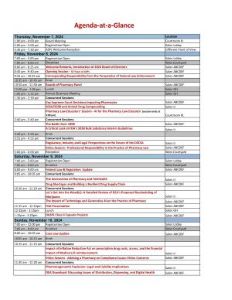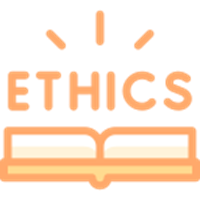Back
Advising a Pharmacy on Compliance Issues: Ethics Concerns
Sunday, November 10, 2024
10:15 AM – 11:15 AM MT
Location: Salon ABCDEF
CE: 1

Jeffrey S. Baird, JD
Chairman, Health Care Group
Brown & Fortunato
Amarillo, TX, United States
Primary Presenter(s)
Health care attorneys are in a unique place. When they advise health care providers (e.g., pharmacies), there are civil implications, potential criminal implications, and there are ethical challenges. This program will discuss (i) ethical challenges that health care attorneys face and (ii) steps to address the challenges. Specifically, the program will discuss factual scenarios pertaining to the following ABA Model Rules of Professional Conduct:
Rule 1.1 – Competence – Health law is multi-faceted. An attorney may be competent in handling acquisitions and other transactions, but may not have the knowledge base to advise a client on e.g., Stark issues.
Rule 1.2 – Scope of Representation and Allocation of Authority Between Client and Lawyer – If an attorney is handling an acquisition for a client, is the attorney expected to examine the acquisition target’s business model for e.g., kickback, Stark and inducement issues?
Rule 5.5 – Unauthorized Practice of Law; Multijurisdictional Practice of Law – With today’s technology, it is easy for an attorney in one state to work with clients in other states. A number of states have adopted the Uniform Practice of Law (“UPL”) that removes many of the obstacles to out-of-state attorneys representing clients in those states. However, an attorney who is not licensed in a state that has not adopted the UPL will likely face obstacles to representing clients in those states.
Rule 1.7 – Conflict of Interest: Current Clients – A successful health care attorney will likely have multiple clients, including those that may compete with each other. In representing a client, it is important that the attorney not take action that may potentially harm another client.
Rule 1.6 – Confidentiality of Information – All attorneys understand the importance of maintaining confidentiality. And yet, an attorney may face the scenario in which a client rejects the attorney’s advice and proceeds on a path that the attorney believes will violate a criminal law. What is the attorney’s obligation at that point?
Rule 1.13 – Organization as Client – The attorney’s main contact with a company is often a CEO, President, or some other officer. The attorney’s client is the company, not the individual officer. If the company is the subject/target of government fraud investigation resulting (at least in part) by the actions of the attorney’s contact, the attorney must be careful to represent only the company…not the individual contact.
Rule 1.1 – Competence – Health law is multi-faceted. An attorney may be competent in handling acquisitions and other transactions, but may not have the knowledge base to advise a client on e.g., Stark issues.
Rule 1.2 – Scope of Representation and Allocation of Authority Between Client and Lawyer – If an attorney is handling an acquisition for a client, is the attorney expected to examine the acquisition target’s business model for e.g., kickback, Stark and inducement issues?
Rule 5.5 – Unauthorized Practice of Law; Multijurisdictional Practice of Law – With today’s technology, it is easy for an attorney in one state to work with clients in other states. A number of states have adopted the Uniform Practice of Law (“UPL”) that removes many of the obstacles to out-of-state attorneys representing clients in those states. However, an attorney who is not licensed in a state that has not adopted the UPL will likely face obstacles to representing clients in those states.
Rule 1.7 – Conflict of Interest: Current Clients – A successful health care attorney will likely have multiple clients, including those that may compete with each other. In representing a client, it is important that the attorney not take action that may potentially harm another client.
Rule 1.6 – Confidentiality of Information – All attorneys understand the importance of maintaining confidentiality. And yet, an attorney may face the scenario in which a client rejects the attorney’s advice and proceeds on a path that the attorney believes will violate a criminal law. What is the attorney’s obligation at that point?
Rule 1.13 – Organization as Client – The attorney’s main contact with a company is often a CEO, President, or some other officer. The attorney’s client is the company, not the individual officer. If the company is the subject/target of government fraud investigation resulting (at least in part) by the actions of the attorney’s contact, the attorney must be careful to represent only the company…not the individual contact.
Learning Objectives:
- List the most important ABA Model Rules of Professional Conduct that apply to health care attorneys.
- Recognize the ethical challenges facing health care attorneys as they advise pharmacies on compliance issues.
- Understand the guidelines the health care attorney must follow when being confronted with ethical challenges.
- Explain to a pharmacy client the unique ethical guidelines health care attorneys must follow.


